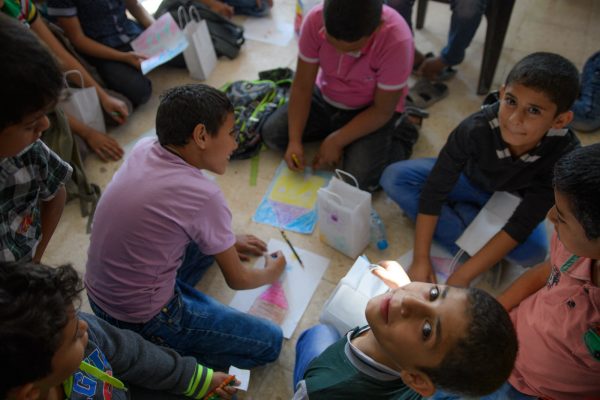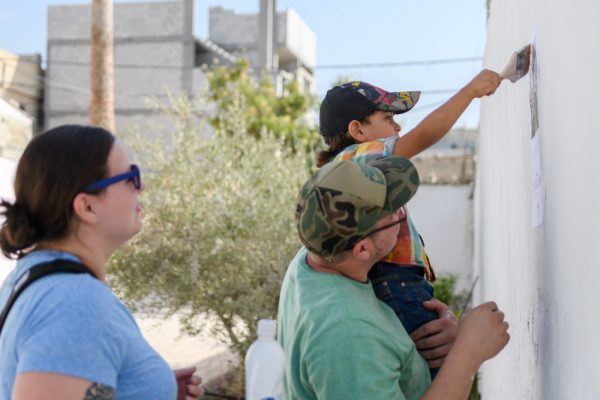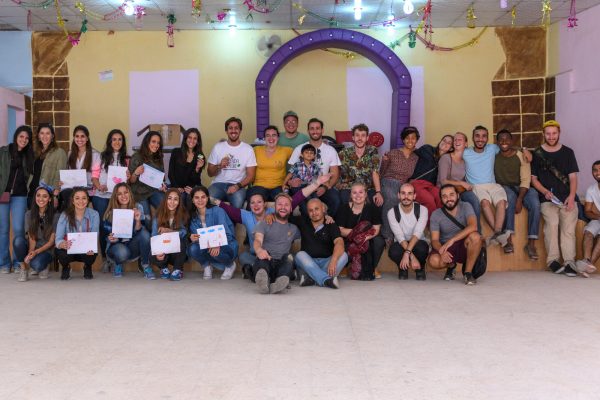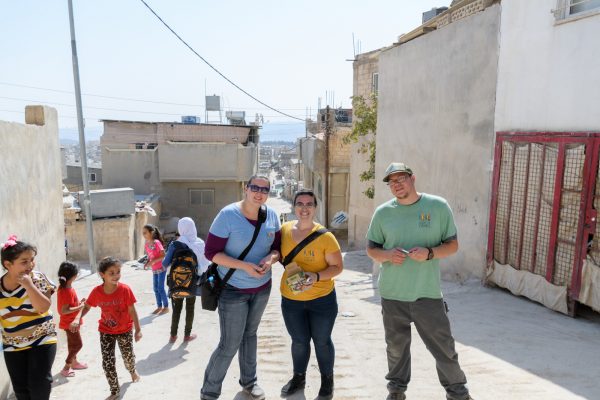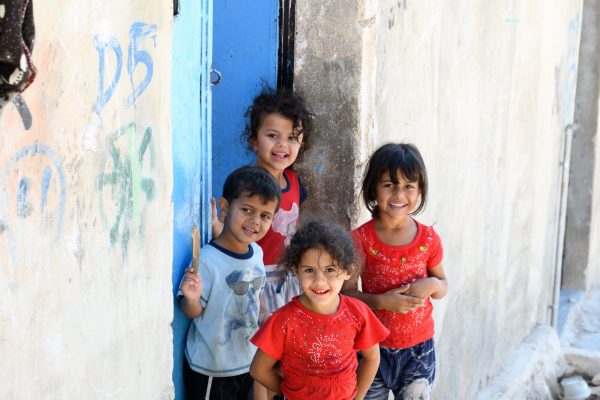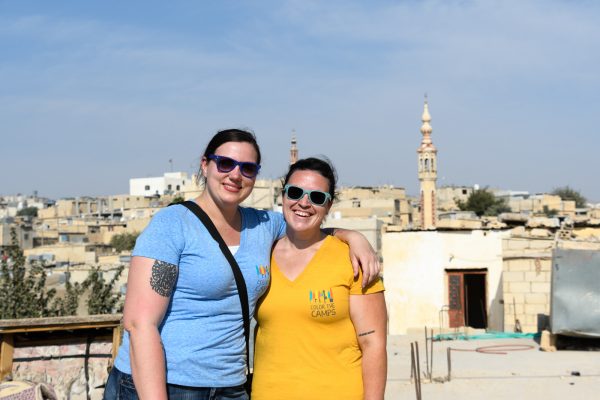Unexpected Venture
Chelsea Champ Lopez (’15) is very clear about one thing: at the beginning, she had absolutely no intention of starting a non-profit organization or of traveling halfway around the world with 300 pounds of colored wax shoved into every nook and cranny of her luggage.
Her original intentions were to have a nice dinner with an old friend. And if she could get her employers to stop throwing away so many crayons, well, that would have been nice, too.
Sometimes, things turn out differently than expected.
But maybe she should have expected it. After all, Lopez muses, one of the biggest lessons she learned while earning her B.A. in environmental sociology and international development is this: “Not everyone is going to change the world, but everyone can do something.”
“Not everyone is going to change the world, but everyone can do something.”
– Chelsea Champ Lopez
The Great Crayon Rescue
It started, as so many good things surely do, at a Chili’s restaurant.
An environmentalist by both inclination and education, Lopez’s time as a Chili’s employee came with one ongoing source of frustration: she watched with dismay as, night after night, they discarded dozens of barely-touched crayons.
It wasn’t until an April 2016 dinner with a friend that Lopez’s inspiration struck. Alex Gomez-Meade was a documentary filmmaker working on a piece about refugee camps in the Middle East. His description of the children in the camps gave Lopez an idea.
“He was just talking about how the kids don’t really have anything,” she remembers. “There’s a UNICEF school, but most don’t go. They’re just wandering around with nothing to do. Alex has many photos of the children drawing on the walls with mud. And I thought, ‘Well, I can get them crayons.’”
Lopez had no idea that it was about to become something that would change her life.
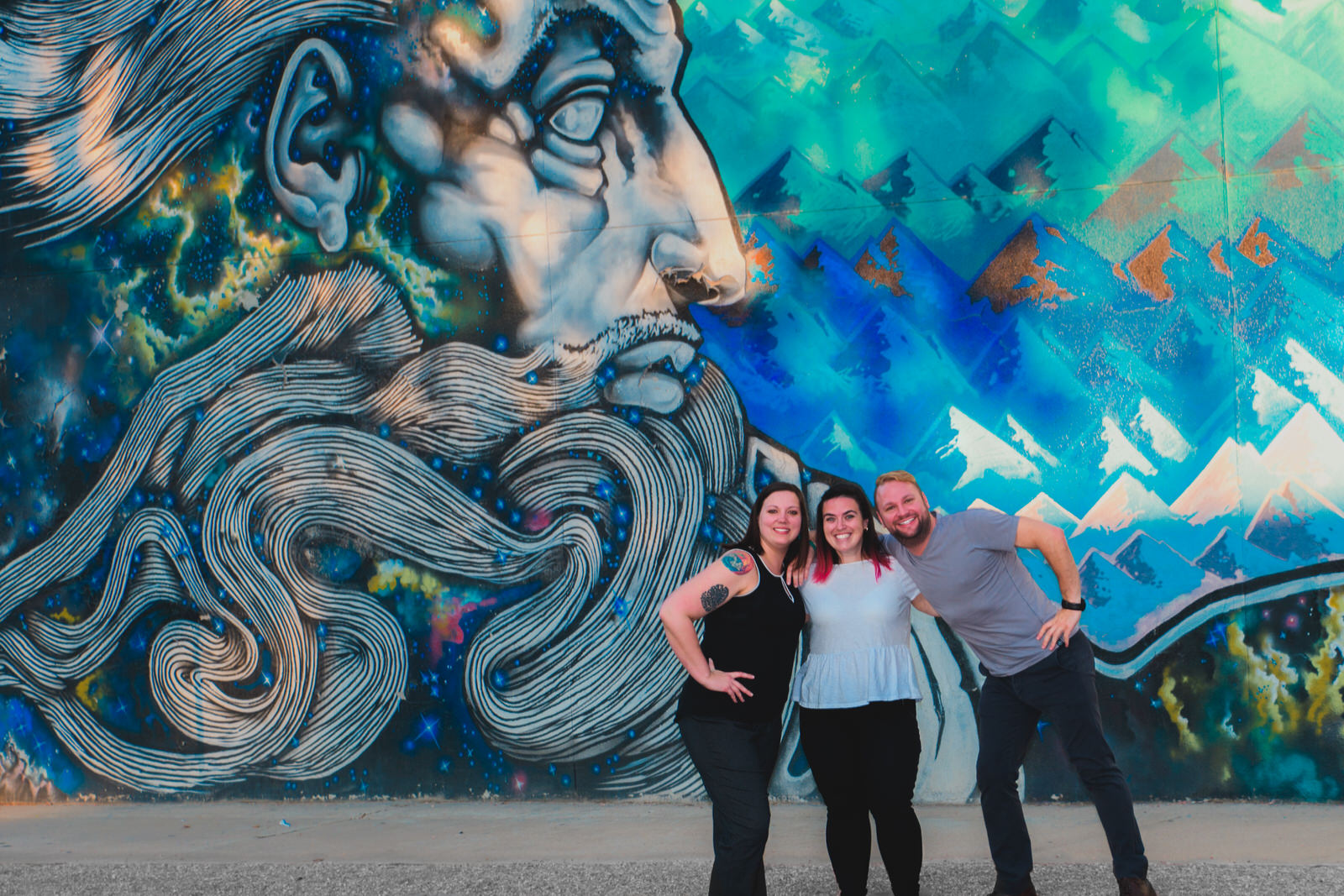
From Denver to Jordan
They called it “Color the Camps” and it began simply by asking her Chili’s co-workers to help her collect the used crayons at the end of the night.
They also set up boxes at the local elementary schools in the spring, asking kids to donate their used art supplies.
“I’m an environmentalist; I’m always looking for ways to use stuff that is going to be thrown away,” Lopez says. “We live in a culture where people are just going to buy new things, anyway.”
By October 2016, Lopez, Gomez-Meade, and their third partner, Betty Kessler-Cocina, were headed to the Jerash Refugee Camp in Jordan.
They carried with them more than 300 pounds of crayons.
The camp itself was established in 1968, so the children there are third-generation refugees. The camp, a sprawling and ramshackle collection of concrete buildings with corrugated zinc roofs, is all they have ever known.
It was a short visit, only two full days, the first spent almost entirely in set-up. The second day, though, was something quite different.
“When we arrived with all of our supplies, there was a line of children out the door,” Lopez recalls. “Over a thousand children showed up to our day of coloring. As we handed out supplies, these children couldn't wait to start coloring and once they started, there was no stopping. We were walking around handing out more and more paper as they filled their own with colorful drawings.
“We also walked through the camp that day and handed out chalk to children in the street who may not have attended our event. We colored on the walls of the camp with them, and played tic tac toe with them, and as we walked away we could hear them laughing behind us as they continued to color. It was an amazing sound.”
A Guiding Light
Education is how Lopez intends to continue her aid, not just to the people she’s already met but to those marginalized people who no one has met yet.
“Sociology is not always an uplifting topic,” she says. “All of my sociology teachers have said that the only way to keep working in the field without getting bogged down is to encourage people to make a difference.”
She’s already seen how small insights into other cultures can shape the understanding of future generations. As part of Color the Camps, she and her partners did an “international art exchange” with an elementary school in Denver; they took self-portraits, paired with actual photos, drawn by the American students with them to Jerash. They brought back the same to share with the kids back home.
“The kids were so smart. They stared at those self-portraits and said, ‘They’re kids, too! They look just like me,’” she says.
This wasn’t Lopez’s first exposure to the effect of the right educator on budding young minds.
It was, after all, two of her own professors - Sally Stablein of Red Rocks Community College and CSU’s own Stephanie Malin - who put her on the path to Color the Camps.
A basic Sociology 101 class with Stablein inspired her to drop a business major she hated in favor of sociology. Stablein was also the first to take her out of the country, first to Europe and later to Brazil, experiences that Lopez found life-changing.
“That’s where it all started for me. Sociology and traveling have shaped my whole world.”
It was Malin who introduced her to the environmental specialization of sociology.
“It made me ask: how can we, as a society that wastes so much, use that to help someone else?” she recalls.
And so now, with Color the Camps in (possibly temporary) abeyance, Lopez’s dream for the future is to pass that kind of inspiration onto the next generation.
“I’m considering going back to school to become a sociology professor at the community college level. I want to tell them, “You can do this, too.” It all starts by seeing a problem and what you can do about it,” she says.
If Lopez can arrange life-changing trips for her students, well that would suit her just fine.
“Travel is so important, but it should be meaningful travel. I saw how to give back and now I want to pass it on. It’s so important to see other communities and cultures. All college students should see the world,” she advises.
And if they should happen to carry a few hundred pounds of crayons with them when they do, well, more power to them.
Learn more about the Department of Sociology.
"Travel is so important, but it should be meaningful travel. I saw how to give back and now I want to pass it on. It’s so important to see other communities and cultures."
– Chelsea Champ Lopez

